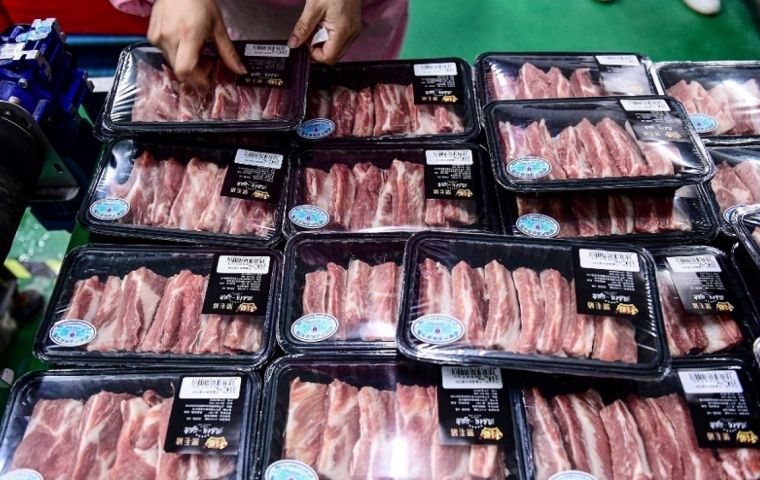MercoPress. South Atlantic News Agency
Pork rib dishes soar in China following the ban on German pig meat imports
 Germany was among the biggest suppliers of ribs to China until it confirmed its first case of African swine fever, an incurable hog disease, earlier this month.
Germany was among the biggest suppliers of ribs to China until it confirmed its first case of African swine fever, an incurable hog disease, earlier this month. The cost of China's much-loved pork rib dishes is soaring after Beijing suspended imports of pig meat from major supplier Germany, hurting restaurants still recovering from the coronavirus hit earlier this year.
Pork ribs are one of China's best-selling menu items but many restaurants specializing in the cut rely on imports, which can be up to 10 times cheaper than local supplies.
Germany was among the biggest suppliers of ribs to China until it confirmed its first case of African swine fever, an incurable hog disease, earlier this month.
After Beijing halted all German pork imports, prices of frozen ribs have surged, say restaurant owners, eroding profits just as customers finally reach normal levels after the coronavirus epidemic.
The price rise also comes after domestic pork hit eye-watering levels last year as China's production plunged because of its own African swine fever outbreaks.
China, which produces about half the world's pork, has boosted imports by 134% in the first eight months of this year to partly offset its shortfall.
But amid strong demand, imported back ribs had already almost doubled from last year's price to 11 Yuan (US$1.62) per kilogram in May, said the manager of an Inner Mongolia-based branch of a “ribs and rice” chain.
The restaurant uses about half a ton of ribs each week for its 29 Yuan-set of back ribs with soup or fermented cabbage and a bowl of rice. About half typically comes from Germany, and the rest from Spain, Denmark or elsewhere.
This week, prices jumped to 14 Yuan, said the manager, adding they could hit 16 Yuan by next week. “This is costing me an extra 300 Yuan a day, which is the equivalent of hiring three more staff. I hope I can survive this year,” he said, declining to be named.




Top Comments
Disclaimer & comment rulesCommenting for this story is now closed.
If you have a Facebook account, become a fan and comment on our Facebook Page!